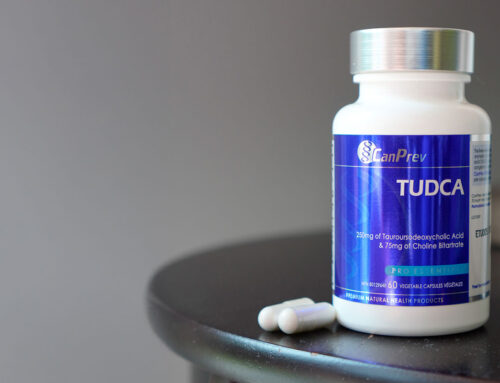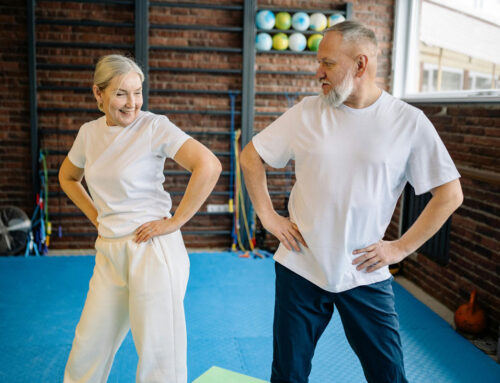MENOPAUSE is the next significant stage in a woman’s life after the reproductive years. It is signalled by the ovaries producing less hormones: Estrogen & Progesterone, and is defined as having no menstrual period for one year.
The age that a woman experiences menopause can vary, but it typically occurs in the late 40s or early 50s. Although it is thought that the age of menopause is genetically determined, external factors such as smoking or chemotherapy can accelerate ovarian function decline, resulting in earlier onset. [1]
The altered hormone levels during this stage of a woman’s life can bring about many unfamiliar and uncomfortable changes, like: insomnia, hot flashes, weight gain, fatigue, short-term memory problems, mood swings and reduced sexual desire.
Sometimes, the symptoms can be quite pronounced, persistent and disruptive to everyday life.
WHAT IS PERIMENOPAUSE?
This is simply the period of time right before menopause begins – which can actually last 4-10 years. During this stage, your body is transitioning into menopause, in which your menstrual cycle may become irregular. You may also start noticing some of the common signs of decreased hormone production.
Once you’ve stopped having a menstrual cycle for 12 consecutive months, you’ve entered menopause – often a time of great change!
Common symptoms and changes during menopause:
- Hot flashes
- Heart palpitations
- Problems with short-term memory
- Muscle and joint pain
- Mood swings and irritability
- Disrupted sleep and insomnia
- Weight gain, especially around the middle
- Weight loss resistance
- Vulvovaginal atrophy (the thinning, and loss of elasticity of vaginal and surrounding vulvar tissues) [3]
- Atrophic vaginitis (includes redness of the vagina, plus increased discharge) [3]
- Vaginal dryness (vulvovaginal atrophy contributes to this, and dryness can mean increased infections and irritation)
- Painful intercourse (vulvovaginal atrophy & dryness contribute to this)
- Decreased bone density and osteoporosis
Did you know that many women experience accelerated bone density loss in the first few years after menopause? [2]
(For better bone health, consider CanPrev’s Osteo Prolong)
As you can see, the list is long and varied, but that doesn’t mean that many of the symptoms are not manageable!
It’s understandable that you may be feeling shy or embarrassed to talk about your vagina health. Nonetheless, it’s a very important topic, and you’re by no means alone in your concerns.
The first step in addressing some of the uncomfortable changes that you may be experiencing during menopause (and perimenopause) is to speak with a trusted healthcare practitioner. Keep the lines of communication open and get regular gynecological exams.
Natural options for vaginal dryness and painful intercourse
While estrogen therapy is commonly prescribed to relieve some of the symptoms of menopause, including vaginal dryness (that may also cause painful intercourse), hormone-based treatments isn’t right for everyone.
Here are a few other options you can try, that are not only natural but can also help to improve your overall hormone health and balance:
- Meno-Prev™ + Mood & Memory by CanPrev (formulation includes black cohosh)
- Add more healthy fats and probiotic-rich foods to the diet
- Vitamin D — decreases the vaginal pH and dryness associated with vaginal atrophy. [4]
- Vitamin E — has been shown to increase the blood supply to the vaginal wall and improve menopausal symptoms. Can be used as a nutritional supplement as well as applied topically or as a vaginal suppository. [4]
- Natural, water-based, hormone-free lubricants
- Avoid using douches, and perfumed soaps or lotions on or around the vulva area
- During intercourse, spend more time in “foreplay” to allow the Bartholin’s glands to release more natural lubrication
* If you’re considering using hormonal therapies or BHRT for menopausal symptoms, including vaginal dryness, be sure to consult a healthcare practitioner who is well-versed in this area of women’s health.
CANPREV RECOMMENDS
Meno-Prev™ + Mood & Memory is an all natural formula designed to provide relief from menopausal complaints, including subtle changes in mood and memory.
It is a workhorse herbal combination that offers considerable relief by alleviating menopausal symptoms, fostering a healthy mood balance, enhancing memory and supporting sexual health.
Curious to learn more about menopause? Head over here to understand how you can better navigate menopausal symptoms.
REFERENCES & STUDIES
[1] Menopause (Journal – Sept 2008): Mother’s Menopausal Age is Associated with her Daughter’s Early Follicular Phase Urinary, Follicle Stimulating Hormone Level [2] Healthline: Menopause – 11 Things Every Woman Should Know [3] The North American Menopause Society: Changes in the Vagina & Vulva [4] Dr. Sara Gottfried, MD: Top Ways to Treat Vaginal Dryness







I am 48, would say I am in perimenopause, I have been having a period every 2-3 weeks for 9 months. Looking for something to help regulate this
Hi there, thank you for your question. Monthly hormone levels/changes become more erratic during perimenopause, sometimes resulting in periods that are closer together or farther apart. CanPrev’s Meno-Prev + Mood & Memory Support formula might be beneficial. This formula can help to regulate fluctuating hormones, ease the transition, and reduce some of the accompanying symptoms like hot flashes, night sweats and low mood. We do encourage you to check in with your healthcare practitioner to ensure that this is the underlying cause of the shortened cycles. Hope this helps!